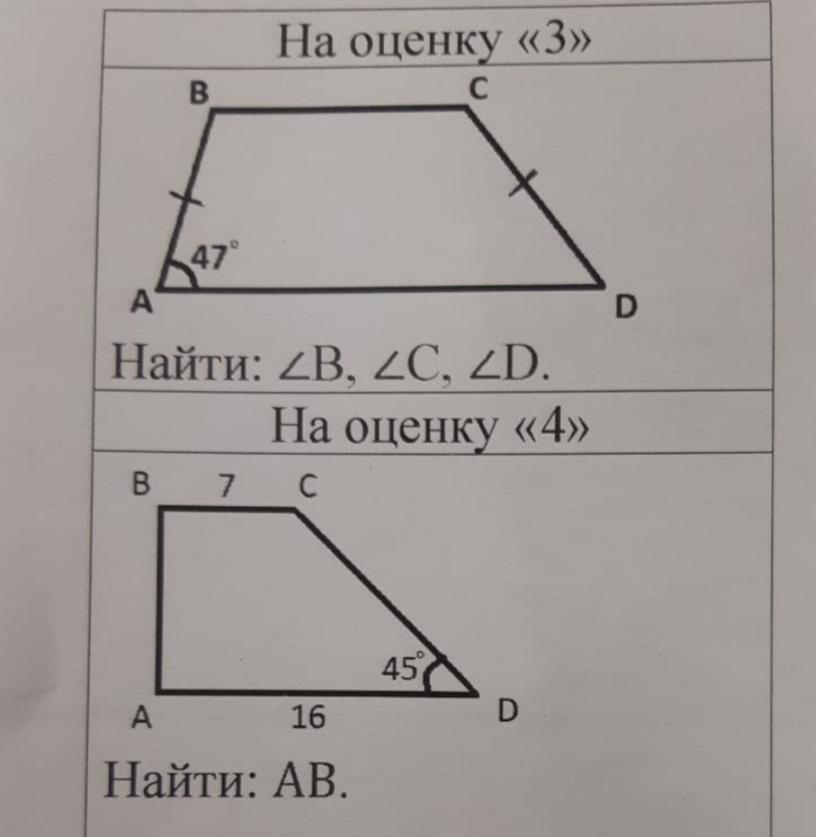Предмет: Геометрия,
автор: mishak21
СРОЧНО ПОМОГИТЕ РЕШИТЬ ЗАДАЧИ
Приложения:

Ответы
Автор ответа:
1
Ответ:
Объяснение:
1) A=D=47
B=C=133 (т.к трапеция равнобедренная)
2)
Приложения:

Похожие вопросы
Предмет: Русский язык,
автор: апа5
Предмет: Окружающий мир,
автор: владик103
Предмет: Қазақ тiлi,
автор: lesey82
Предмет: География,
автор: fafdaff24
Предмет: Английский язык,
автор: KristenStr